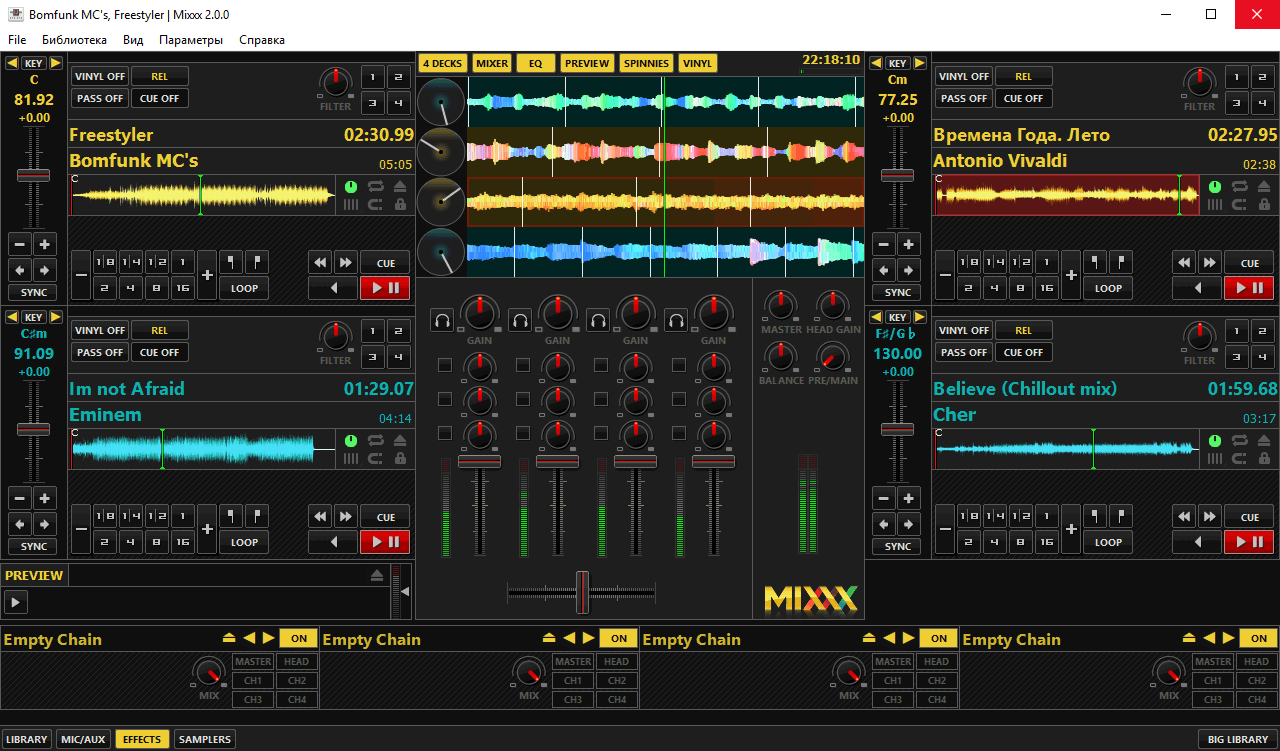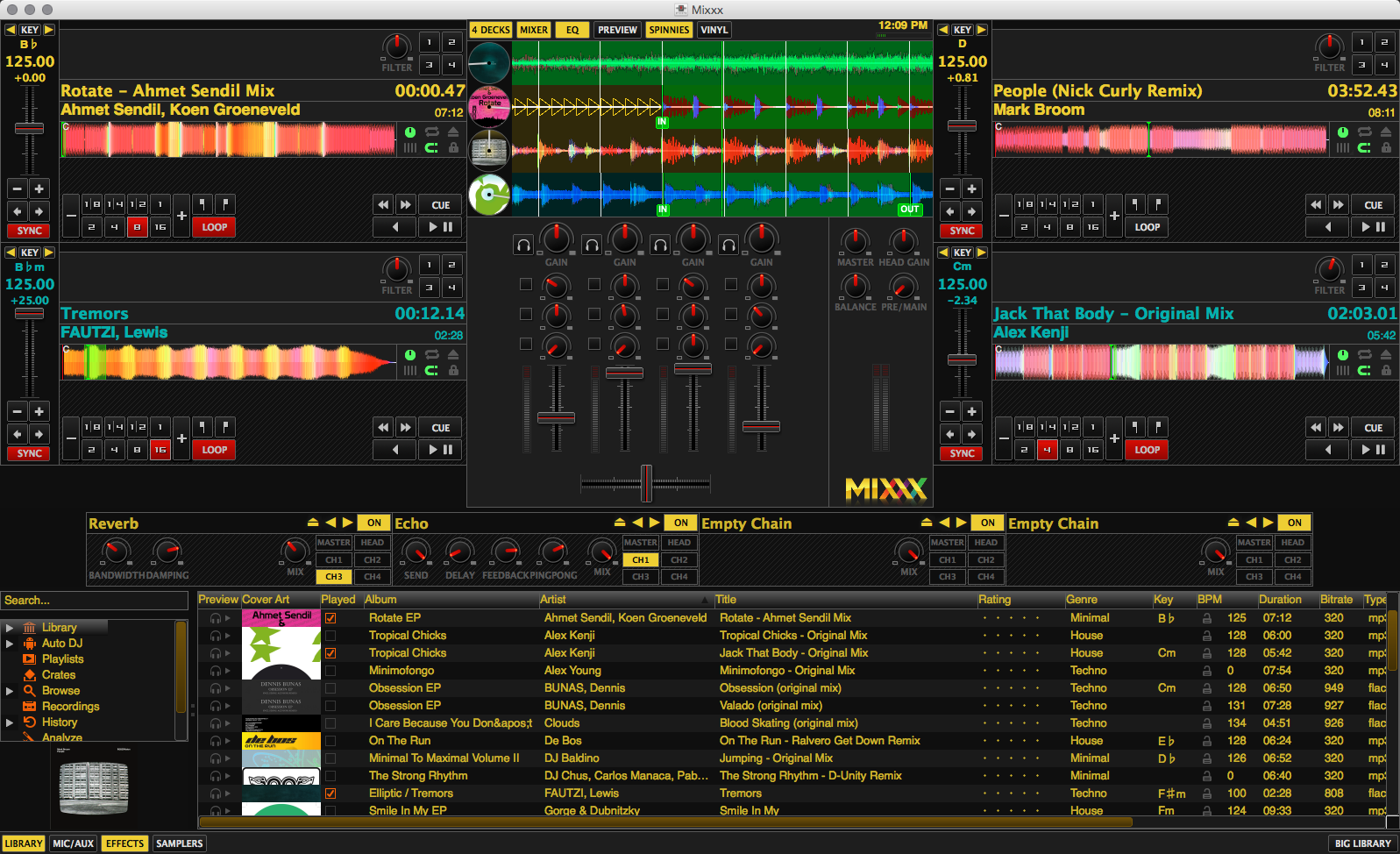

- #Mixxx shoutcast2 install
- #Mixxx shoutcast2 zip file
- #Mixxx shoutcast2 update
- #Mixxx shoutcast2 windows
*Do NOT use other versions of the LAME encoder or MIXXX will show an error while broadcasting and remember to rename*
#Mixxx shoutcast2 windows
If you have the 64-bit version of windows copy libmp3lame.dll from the 圆4 folder To your MIXXX folder Rename the DLL to lame_enc.dll If you have the 32-bit version of windows copy libmp3lame.dll from the x86 folder
#Mixxx shoutcast2 zip file
The ZIP file will contain both x86 and 圆4 DLL files.
#Mixxx shoutcast2 install
To set up your station to use MIXXX simply follow these instructions and you'll be up and broadcasting in no time.ĭownload the MIXXX software from and Install MIXXX to your computer using the default settingsĢ) Download the MP3 Lame Encoder To begin streaming MP3 audio using MIXXX on windows follow the following quick steps: Download LAME 3.98.4 binaries from. This program has all the great tools and functions you'll need to broadcast right from your computer. Title: Insert your custom title metadata here.Broadcasting using MIXXX is a great way to broadcast live music or your own voice across the Internet.Artist: Insert your custom artist metadata here, your DJ name for example.Enable custom metadata: Toggles custom metadata on and off.

You can disable this feature and use your own custom metadata. The changes do not affect the case for the combination of OGG/Icecast2.īy default, Mixxx broadcasts artist and title information of the files that you play to your listeners. Or even if you wanted a very unusual format: Hey, I like $artist, here is $title by $artist. Or if you were doing a live mix with several artists, you could have: Live mix by MyName - currently playing: $artist. For example if you were broadcasting as part of a station, you could add the station’s name or the presenter’s name in the title: MyStation | $artist - $title. Previously only artist - title was allowed. This allows to set custom metatdata formats for the Shoutcast title field.
#Mixxx shoutcast2 update
Check this box to update the metadata anyway. Dynamically update Ogg Vorbis metadata: Due to flaws in some streaming clients, updating Ogg Vorbis metadata dynamically can cause listener glitches and disconnections.Enable UTF-8 metadata: If enabled, this option fixes broken accented and foreign language symbols in metadata, assuming the streaming provider has configured the server to support UTF-8 metadata.Public stream: If enabled, this option adds your radio station to the Shoutcast/Icecast directory.

Use in the Host field and 8000 in the Port field instead. It is required to establish the connection to the server and to start the broadcast.ĭo not enter a URL as the host! does not work. Password: As provided by your streaming server provider, unless you run your own radio server. Port: As provided by your streaming server provider. It always begins with a / (slash) followed by a text without any special characters in it. If you haven’t been given a specific mount point you can usually make one up. The setting must not be blank if you are using Icecast. For Shoutcast it is not necessary to specify a mount point. Mount: A mount point is a unique name identifying a particular stream. The default login for Icecast is sourcewhile the default login for Shoutcast is admin. Without this, you will not connect successfully to the server. Login: As provided by your streaming server provider. Host: You can enter the host as either a host name or an IP address. If you don’t provide a stream name, Shoutcast 2 rejects the connection (where Shoutcast 1 would accept this case). Mixxx works with Shoutcast 2 using the Shoutcast 1 protocol if you provide a stream name in Preferences ‣ Live Broadcasting ‣ Stream Settings. Shoutcast 1, Icecast 1, and Icecast 2 servers are supported. Type: Select the type of streaming server you want to connect with. Live Broadcasting Preferences - IceCast Servers


 0 kommentar(er)
0 kommentar(er)
